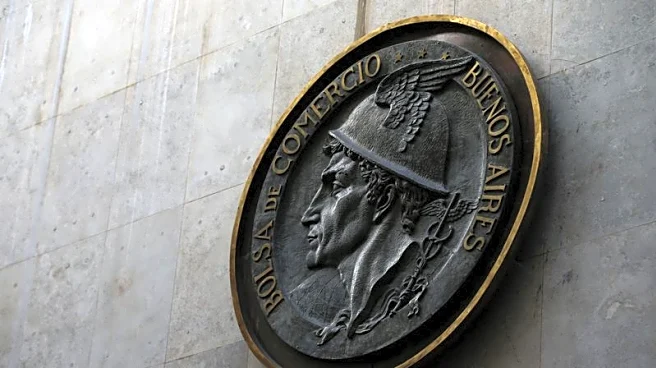What's Happening?
The international community is reportedly close to securing a peace deal for Gaza, potentially ending a two-year conflict that has resulted in a severe humanitarian crisis. Yvette Cooper, the new foreign secretary, has returned from a UN summit where significant momentum was observed towards ending the war. President Trump has indicated that a peace deal is within reach, with the White House backing a plan involving Tony Blair leading a temporary administration in Gaza. Despite the optimism, Cooper acknowledges the fragility of the process and the numerous obstacles that remain. The proposed plan includes a ceasefire, restoration of humanitarian aid, and the release of hostages.
Why It's Important?
The potential peace deal is significant as it could bring an end to the ongoing humanitarian crisis in Gaza, which has claimed thousands of lives. The involvement of major international players, including the U.S. and the UN, underscores the global importance of resolving the conflict. A successful peace agreement could stabilize the region, improve humanitarian conditions, and potentially reshape geopolitical alliances. However, the process is delicate, and the role of controversial figures like Tony Blair may affect its acceptance and implementation.
What's Next?
The next steps involve maintaining the momentum towards peace and addressing the fragile nature of the process. The international community must work to overcome obstacles and ensure the proposed ceasefire and humanitarian aid restoration are implemented effectively. The role of President Trump and the U.S. in bringing Israel on board is crucial, and ongoing diplomatic efforts will be necessary to secure a lasting resolution.
Beyond the Headlines
The ethical implications of the conflict and the humanitarian crisis are profound, with the suffering of civilians, particularly children, at the forefront. The peace process must address these issues and ensure that future governance in Gaza prioritizes human rights and stability. The involvement of Tony Blair, given his controversial history, adds a layer of complexity to the negotiations.









